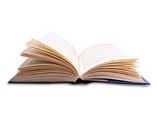CHAPTER SEVEN
My father had a close friend named Sevdin Abi (Abi means older brother in Turkish) in the ’70s. He was a Kurdish man from eastern Turkey who worked as a bus driver, an amazing human being with a kind heart and a constant positive attitude about life. As a six-year-old kid I loved being around Uncle Sevdin and his ever-smiling face. Long-distance bus drivers like him had assistants called “muavin” — they were there to bring water to passengers, to help them freshen up during a long journey. I wanted to be Sevdin Abi’s muavin. I’m not sure if Sevdin Abi had a muavin at all or if he didn’t have one that particular day, but I remember crying very hard, trying to convince my father to let me sit beside him on his next trip; they didn’t let me.
Although I grew up in the embrace of a loving extended family, my childhood was not all fun and games, movies, sports, comic books, and music. During the late ’70s, when I was only six or seven years old, the country had its share of political violence between the right-wing ultranationalists and the left-wing opposition. My mom told me we were afraid to go to grocery stores or crowded areas such as farmers’ markets (pazars) to buy foods in case a bomb was detonated. Any crowded place was considered risky. After so many people lost their lives, things seemed to calm down a bit in 1980, but then there came more terror attacks. I had to be around twelve or thirteen at the time. I remember being afraid to walk around certain parts of the city as well as traveling to some touristic coastal towns because PKK, classified as a terror organization by the European Union, the US, Canada, UK, Australia, New Zealand, and Japan, was placing bombs in trash bins and on public transport. There were times none of us dared to use the buses for fear of being blown up, and the graphic images of the bloody aftermath on the front pages of Turkish newspapers, and on the TV news, which did not censor much in those days, will always stay with me.
Still, these terror attacks never changed the way we thought about our Kurdish neighbors. They were our friends, and we saw that these indiscriminate killings cost many innocent Kurds their lives as well. You can’t think your way out of fear, though, and my anger at the perpetrators of these atrocities has never left me. My hate for terrorism has deep roots that go back to my childhood years, and the way members of a community will turn a blind eye or justify terror attacks to this day nauseates me.
I do believe the Turkish government treated some of the Kurdish people unfairly; from what I can remember there were restrictions on the use of the Kurdish language, and some predominantly Kurdish towns and cities did not get the same financial support as other parts of the country. I am not in a position to speak to the challenges an average Kurdish person faced that were different than other citizens in different parts of the country. But I knew for a fact that there were many poor Turkish people and many successful and famous Kurdish people, although this shouldn’t take anything away from some of the injustices Kurdish people faced. But I can say honestly that in the neighborhoods in Karsiyaka where I grew up, the Kurdish people I saw every day were our friends, just like the Armenian, Greek (Rum), and Jewish families.
I traveled around many parts of Turkey with my father as a kid. I went to Van when he was doing his residency in the late ’70s and Diyarbakir after that, when he was completing his mandatory military service, and I had many Kurdish friends while growing up in Izmir. I was deeply familiar with the beauty of Kurdish culture and the kind and generous nature of the Kurdish people. This is why I truly think traveling is the best weapon against the “us and them” mentality.
Travel helps people understand that we are all human and our cultural practices or differences shouldn’t divide us; they should rather be viewed as things to cherish and learn from. One of my favorite writers, Mark Twain, had it right when he wrote, “Travel is fatal to prejudice, bigotry, and narrow-mindedness, and many of our people need it sorely on these accounts. Broad, wholesome, charitable views of men and things cannot be acquired by vegetating in one little corner of the earth all one’s lifetime.”
A few years ago, I reconnected with my father’s second wife, Layla. I recall her being a very compassionate person and an animal lover. We shared many cherished memories over the phone. Having spent a good amount of my childhood years around her, I asked her many questions about my childhood. She told me that we lost Sevdin Abi in a bus crash many years ago. I thought about my childhood memories with him and got teary-eyed. I also received the sad news from her brother about a year ago that we lost Layla as well. I am very glad we were able to reconnect before her passing.



Comments